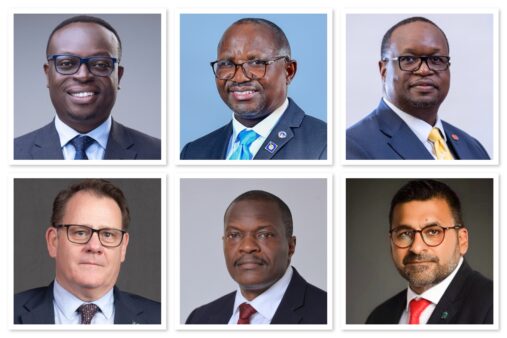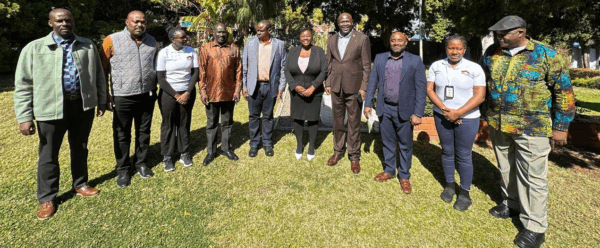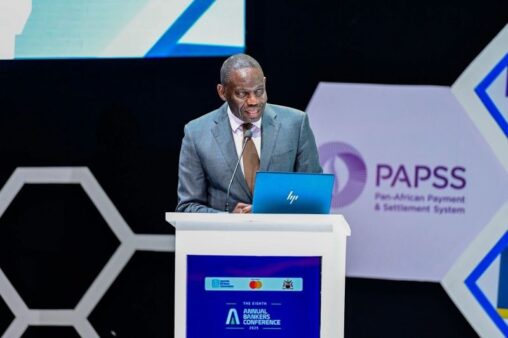PostBank and UBA’s Julius Kakeeto on Banking’s Digital Future and the Remittance Opportunity

Uganda’s remittance inflows are worth more than USD 1.4 billion a year — a figure Julius Kakeeto, Managing Director of PostBank and Chairman of the Uganda Bankers’ Association, believes can be doubled with the right ecosystems.
Speaking to CEO East Africa Magazine’s Paul Murungi on the sidelines of the Annual Bankers Conference, Kakeeto shares how PostBank is leveraging its Wendi mobile wallet to dominate digital transactions, sustain double-digit growth, and tap into the diaspora opportunity, while confronting cyberfraud and other industry headwinds.
You delivered a powerful speech on remittances in your capacity as UBA Chairman at the Annual Bankers Conference. What have been your key takeaways both in terms of learning and unlearnin gfrom this year’s conference?
If you look at the USD 1.4 billion coming into the country annually. That probably makes remittances one of our leading exports and it is not far off from foreign direct investment, excluding oil and gas.
As bankers, we’re focusing our conversation around remittances because it’s a big opportunity but has its own risks and challenges. We must also acknowledge that there’s also a lot of innovation taking place within the space of remittances.
We expect to see more solutions come along the way. For the banks, it’s been good to sit with fintechs and actually analyse the business of remittances.
Uganda is going to continue exporting labour which means that’s a very high growth area, but what do banks have to do.
Fintechs focus a lot on developing the technology, but I think banks need to develop ecosystems around remittances so that the recipients benefit from the remittances, and senders get value for their money. Let’s open up investment opportunities so that they can have some impact on the economy.
How is PostBank involved in the space of remittances?
Historically, PostBank has been going to the diaspora, we’re into North America and Dubai.
Previously we moved to these markets with generic solutions, we’ve started moving away from that into solutions that speak to the needs of these diaspora workers.
PostBank integrated with Transfast which was bought by Mastercard, and we’ve also integrated Wendi mobile wallet with Western Union. This means, a Ugandan sitting in Dubai or London can send money via Wendi mobile wallet to Yumbe District in West Nile.
As PostBank, we want to invest in supporting the whole onboarding process for Ugandans heading in the diaspora.
There are so many prospective migrant workers who don’t have money for medical check up, health insurance or travel. If they can be supported, they can be a good customer as a source of deposits, but also borrowing for other needs such as land purchase, or construction.
How have the past six months been for you in terms of key growth metrics?
The first half of the year has been good, we’ve delivered growth across all parameters. Revenue has grown and we’re trending at about 20 percent growth momentum.
Deposits so far by half-year were trending at above 25 percent growth momentum.
The loan book hasn’t grown as fast because in the first half of the year, we were re-organising ourselves to comply with Basel III, a new regulation that requires new structuring of the balance sheet. That slowed down our lending, we hope we shall pick up.
But overall, it has been a good half-year, we’ve done well on different schemes, we won theAgricultural Credit Facility (ACF) Awards almost across all categories in terms of supporting agricultural lending.
We’ve been entrusted with large-scale farmers for production and we’re doing so well.
Wendi is doing well with Parish Development Model payments. And our sustainability journey is ongoing, and that involves living our purpose of fostering prosperity through driving financial inclusion and stimulating entrepreneurship and services.
What factors do you attribute to this half-year growth?
A lot of it has been around customer acquisition, we’ve managed to bring quite a number of relationships on board that have supported this journey.
We’ve also seen volumes grow in Wendi, and our digital channels continue to penetrate the market. As I speak today, we have 57 branches that are only handling 10 percent of our transactions; 90 percent of the other transactions go through our digital transactions.
And in terms of value, our branches are handling 44 percent of the transactions; so you can see the real growth of today and tomorrow lies in digital and our focus is going to be there.
We’re also rolling out our super agency model around Wendi mobile wallet which is a game changer in the digital banking space.
Are there any major headwinds the sector is currently facing, particularly around the issue of interest rates, which many Ugandans continue to call on banks to reduce?
Banking is in stable space if you look at the reports that have been unveiled from the regulator, and the Uganda Bureau of Statistics. The industry is solid and the banks are doing well in compliance.
Which key sectors do you consider to be high performing, and which ones are lagging?
I think there’s commodities especially in the agricultural space. Uganda has enjoyed a very good period around coffee exports and gold exports if you look at the revenues trickling in.
Remittances are doing well, and even the government’s ten-fold programme around agri-business, science and innovation, services, tourism [above a billion dollars in revenue], manufacturing; all these are in a growth mode.
What keeps you awake?
A few things keep me awake, and one of them is cyberfraud. As we innovate technology, the fraudsters are also busy innovating.
It’s a very tough business, and fraudsters within that space are difficult to catch. So, all the time, you have to keep on improving your defensive mechanisms, practices and ensuring proper staff conduct.
Leading a top bank while also serving as UBA Chair must come with immense pressure. How do you stay balanced and maintain your well-being?
Exercises are part of what I do, and I feel better and refreshed when I work out. I also spend time with family and friends.
I also watch football in my spare time, and I’m an ardent Arsenal fan…[laughs].
At the end of the day, it’s always the big picture you’re chasing. Every time I live that purpose of fostering prosperity for Ugandans, I feel renewed, young, and energised!
Share this content:

 10 Key Facts You Need to Know About Kampala’s Property Market in H1 2025
10 Key Facts You Need to Know About Kampala’s Property Market in H1 2025






Post Comment